Chittagong University of Engineering & Technology (CUET) – Admission, Result, Notice, Fee & Facilities
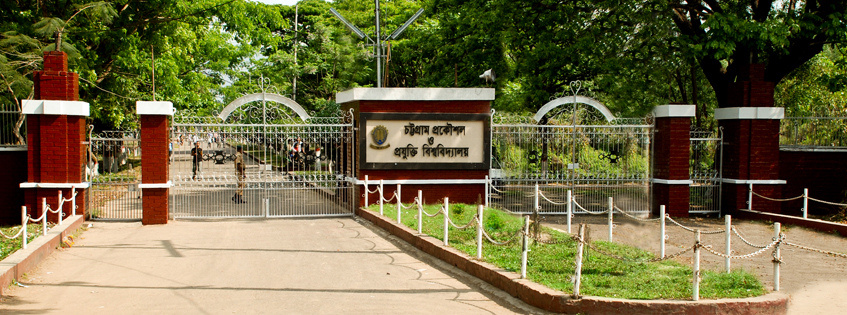
Chittagong University of Engineering & Technology Table of Contents Related Post Chittagong University of Engineering & Technology About Chittagong University of Engineering & Technology (CUET) is one of Bangladesh’s leading institutions for engineering, technology, and applied sciences education. Established in 1968 as an Engineering College, it was later upgraded to a full-fledged university in 2003. Located in a serene campus in Raozan, Chittagong, CUET is dedicated to producing skilled engineers, technologists, and researchers who can contribute to national and global development. CUET offers undergraduate and postgraduate programs across disciplines such as Civil, Mechanical, Electrical, Computer Science, and Architecture. The university is known for its rigorous academic standards, cutting-edge research, and emphasis on innovation. Equipped with state-of-the-art laboratories, modern facilities, and an experienced faculty, CUET provides students with a dynamic learning environment. Its commitment to excellence in education, research, and community service makes CUET a hub for aspiring engineers and technologists striving to shape the future of technology and infrastructure. Basic Info Official Name – Chittagong University of Engineering & Technology Establish Year- 1968 Official Website Link – www.cuet.ac.bd Official Facebook Link- Address- Pahartoli, Raozan-4349, Chittagong, Bangladesh Chittagong University of Engineering & Technology Faculties, Departments, Courses, Duration, and Fees CUET is a premier institution offering engineering and technology-focused education in Bangladesh. Below is an overview of its faculties, departments, courses, program durations, and fees. 1. Faculties and Departments CUET has several faculties encompassing a wide range of engineering and technology disciplines: Faculty Departments Faculty of Civil Engineering Civil Engineering (CE), Water Resources Engineering (WRE) Faculty of Mechanical Engineering Mechanical Engineering (ME), Petroleum & Mining Engineering (PME) Faculty of Electrical & Computer Engineering Electrical & Electronic Engineering (EEE), Computer Science & Engineering (CSE) Faculty of Architecture & Planning Architecture (Arch), Urban and Regional Planning (URP) Faculty of Engineering Technology Materials Science & Engineering (MSE), Mechatronics Engineering 2. Courses Offered Undergraduate Programs Bachelor of Science (BSc) in Engineering Civil Engineering, Mechanical Engineering, EEE, CSE, etc. Duration: 4 years (8 semesters) Bachelor of Architecture (BArch) Architecture and Urban Planning Duration: 5 years Postgraduate Programs Master of Science (MSc) in Engineering Offered in various engineering disciplines. Duration: 1.5–2 years Master of Architecture (MArch) Advanced studies in architecture. Duration: 1.5–2 years PhD Programs Research-focused doctoral programs in engineering and technology. Duration: 3–5 years 3. Course Duration and Fees Program Duration Approximate Fees (BDT) BSc in Engineering 4 years 45,000–60,000 per year Bachelor of Architecture 5 years 50,000–70,000 per year MSc in Engineering 1.5–2 years 40,000–60,000 per year PhD Programs 3–5 years 50,000–70,000 per year Note: Fees may vary by department and academic year. International students typically have higher fees. 4. Key Features of CUET Programs Practical Learning: Emphasis on hands-on training, fieldwork, and laboratory experience. Research Opportunities: Focused on solving real-world engineering and technological challenges. Modern Facilities: Advanced laboratories, workshops, and research centers. Scholarships: Merit-based and need-based scholarships are available for eligible students. For detailed information about specific courses and updates, visit the CUET official website. Chittagong University of Engineering & Technology Admission Process CUET conducts a competitive and transparent admission process for its undergraduate and postgraduate programs. Below is a step-by-step guide to the admission process: 1. Admission to Undergraduate Programs (BSc in Engineering & BArch) Eligibility Criteria Must have completed HSC or equivalent with Physics, Chemistry, and Mathematics. A minimum GPA (usually 4.00 out of 5.00) in SSC and HSC exams is required. Applicants must achieve a minimum score in Physics, Chemistry, and Mathematics collectively in HSC. Application Process Online Application Visit the official CUET admission portal (www.cuet.ac.bd). Fill out the application form with required details. Upload recent photographs and scanned copies of certificates. Application Fee Payment Pay the non-refundable application fee through designated banking or mobile payment systems. Admission Test Applicants are shortlisted for a written admission test based on their HSC performance. Subjects: Mathematics, Physics, Chemistry, and English. The admission test is conducted at CUET’s campus. Merit List and Selection A merit list is prepared based on admission test scores. Reserved quotas exist for freedom fighter families and tribal communities. Final Enrollment Selected candidates must complete the admission process by submitting original documents and paying the initial fees. 2. Admission to Postgraduate Programs (MSc, MArch, and PhD) Eligibility Criteria Bachelor’s degree in the relevant engineering or architecture field from a recognized institution. Minimum academic results as specified by the respective department. Application Process Submit an application through the CUET website or the respective faculty office. Provide a research proposal for research-based programs like PhD or MPhil. Admission Test/Interview Applicants may need to sit for a written test or interview. Evaluation is based on prior academic performance and research aptitude. 3. Important Dates Undergraduate Applications: Announced after the HSC results are published. Postgraduate Applications: Typically open twice a year (Spring and Fall semesters). Admission Test: Dates are announced on the CUET website. 4. Required Documents Academic transcripts and certificates (SSC, HSC, or undergraduate). National ID or birth certificate. Recent passport-sized photographs. Payment receipt for the application fee. 5. Fees and Scholarships CUET offers affordable tuition fees for both undergraduate and postgraduate programs. Scholarships and financial aid are available for meritorious and financially disadvantaged students. 6. International Students International applicants are welcome and must provide equivalent qualifications and English proficiency (IELTS/TOEFL scores). Fees for international students are higher and are detailed on the CUET website. For updates and details, visit the official CUET admission portal. Chittagong University of Engineering & Technology Campus Facilities Library Laboratories Hostel Computer Lab Auditorium Play Ground Medical Cultural Green Environment Transport Key Points Chittagong University of Engineering & Technology Admission FAQs Chittagong University of Engineering & Technology Admission
Sher-e-Bangla Agricultural University – Admission, Result, Notice, Fee & Facilities
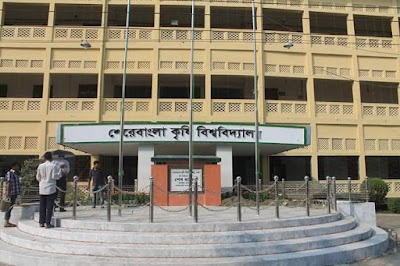
Sher-e-Bangla Agricultural University Table of Contents Related Post Sher-e-Bangla Agricultural University About Sher-e-Bangla Agricultural University (SAU), located in Dhaka, Bangladesh, is a prestigious institution dedicated to advancing education, research, and innovation in agriculture and related sciences. Established in 1938 as the Bengal Agricultural Institute and later upgraded to a university in 2001, SAU has a rich legacy of producing skilled professionals to meet the challenges of sustainable agriculture, food security, and environmental conservation. SAU offers a variety of undergraduate, postgraduate, and doctoral programs through its faculties, including Agriculture, Agribusiness Management, and Animal Science & Veterinary Medicine. With state-of-the-art facilities, experienced faculty, and a focus on practical learning, SAU equips students with the knowledge and skills to drive progress in agricultural sciences. Committed to academic excellence and community service, the university provides scholarships, affordable fees, and vibrant campus life. SAU stands as a beacon of innovation and sustainability, contributing significantly to national and global agricultural advancements. Basic Info Official Name – Sher-e-Bangla Agricultural University Establish Year- 2001 Official Website Link – www.sau.edu.bd Official Facebook Link- Address- Sher-e-Bangla Agricultural University, Sher-e-Bangla Nagar, Dhaka 1207, Bangladesh Sher-e-Bangla University Faculties, Departments, Courses, Duration, and Fees Sher-e-Bangla Agricultural University (SAU), located in Dhaka, Bangladesh, is one of the oldest and most prestigious agricultural universities in the country. It is renowned for its contributions to agricultural education, research, and innovation. Below is a detailed overview of SAU’s faculties, departments, academic programs, course durations, and fee structures. Faculties and Departments SAU offers multidisciplinary programs through its faculties and departments, focusing on agriculture and allied sciences. 1. Faculty of Agriculture Departments: Agronomy Soil Science Horticulture Plant Pathology Entomology Genetics and Plant Breeding Agricultural Extension and Information Systems Agricultural Chemistry Focus: Crop production, soil health, pest management, and sustainable farming practices. 2. Faculty of Agribusiness Management Departments: Agribusiness and Marketing Agricultural Economics Rural Development Focus: Business management in agriculture, rural development, and economics. 3. Faculty of Animal Science and Veterinary Medicine Departments: Veterinary Medicine Animal Husbandry Dairy Science Focus: Livestock health, animal nutrition, and veterinary practices. Courses and Duration Undergraduate Programs: Degrees Offered: Bachelor of Science in Agriculture (BSc Ag). Bachelor of Agribusiness Management (BBA Agri). Bachelor of Veterinary Science and Animal Husbandry (BVSc & AH). Duration: Agriculture and Agribusiness: 4 years (8 semesters). Veterinary Science: 5 years (10 semesters). Postgraduate Programs: Degrees Offered: Master of Science (MSc) in Agriculture. Master of Agribusiness Management (MBA Agri). Master of Veterinary Science (MVSc). Duration: 1–2 years depending on the program. PhD Programs: Available in specialized fields: Research-focused doctoral programs in agriculture, agribusiness, and animal sciences. Duration: 3–5 years. Fee Structure Sher-e-Bangla Agricultural University maintains affordable tuition fees to ensure education accessibility for students from all backgrounds. Undergraduate Programs: Admission Fee: BDT 10,000 – 15,000 (one-time). Semester Fee: BDT 3,000 – 5,000 per semester. Lab, Library, and Examination Fees: Approximately BDT 2,000 – 4,000 per semester. Postgraduate Programs: Admission Fee: BDT 15,000 – 20,000 (one-time). Tuition Fee: BDT 5,000 – 8,000 per semester. PhD Programs: Admission Fee: BDT 20,000. Research Fee: BDT 50,000 – 80,000 annually, depending on the field of study. Additional Costs: Hostel Accommodation: BDT 2,000 – 3,000 per semester. Mess Charges: Variable based on individual consumption. Facilities at SAU Modern Infrastructure: Equipped classrooms, advanced labs, and a central library. Research Centers: Focused on crop improvement, livestock health, and agribusiness innovation. Green Campus: A lush and eco-friendly environment conducive to learning. Scholarships: Merit-based and need-based scholarships to support students. Student Life: Clubs, cultural activities, and sports facilities enhance overall growth. Why Choose SAU? SAU is a hub of academic excellence and practical innovation in agriculture, making it a top choice for students aspiring to contribute to sustainable agriculture, food security, and environmental conservation. The university’s affordable education, diverse programs, and robust research opportunities make it a standout institution in Bangladesh. Sher-e-Bangla Agricultural University Admission Process Sher-e-Bangla Agricultural University (SAU) in Dhaka is renowned for its focus on agricultural sciences, business management, and veterinary education. The university follows a structured and competitive admission process for undergraduate, postgraduate, and doctoral programs. Below is a detailed guide to the admission process: Undergraduate Admission Process Eligibility Criteria: Candidates must have completed SSC and HSC (or equivalent) examinations from Science background. Minimum GPA Requirements: SSC: 3.50 or above. HSC: 3.50 or above. Combined GPA: 8.00 (including optional subjects). Must have studied Mathematics, Physics, Chemistry, and Biology in HSC. Application Steps: Online Application: Visit SAU’s admission portal: www.sau.edu.bd. Fill out the application form and upload necessary documents (e.g., SSC and HSC certificates, photos). Pay the application fee, typically BDT 1,000 – 1,500, via mobile banking or bank deposit. Admission Test: The test usually covers Mathematics, Physics, Chemistry, Biology, and English. The exam is held in November or December, with specific dates announced in the admission notice. Merit List and Quotas: Merit lists are prepared based on admission test performance and previous academic records. Reserved seats are available for quotas such as freedom fighters’ children, indigenous students, and others as per government regulations. Final Admission: Selected candidates complete the final admission by submitting required documents and paying the admission fees. Postgraduate Admission Process Eligibility Criteria: A relevant Bachelor’s degree (e.g., Agriculture, Veterinary Medicine, Business Administration) with a minimum CGPA of 2.50 on a 4.00 scale or equivalent. Application Steps: Application Submission: Candidates can apply online or in person by submitting academic documents, a recent photograph, and the application fee. Written Test/Interview: Some programs may require an entrance exam or interview to assess academic and professional aptitude. Selection: Admissions are granted based on academic records, test/interview performance, and availability of seats. PhD Admission Process Eligibility Criteria: A Master’s degree in a relevant field with a strong academic background and a research focus. Application Steps: Proposal Submission: Candidates must submit a detailed research proposal along with academic transcripts and certifications. Interview: Shortlisted applicants are called for an interview to evaluate their research potential and alignment with the university’s focus areas. Approval and Enrollment: Successful candidates are enrolled after approval by the university’s academic committee and payment of
Patuakhali Science and Technology University (PSTU) – Admission, Result, Notice, Fee & Facilities
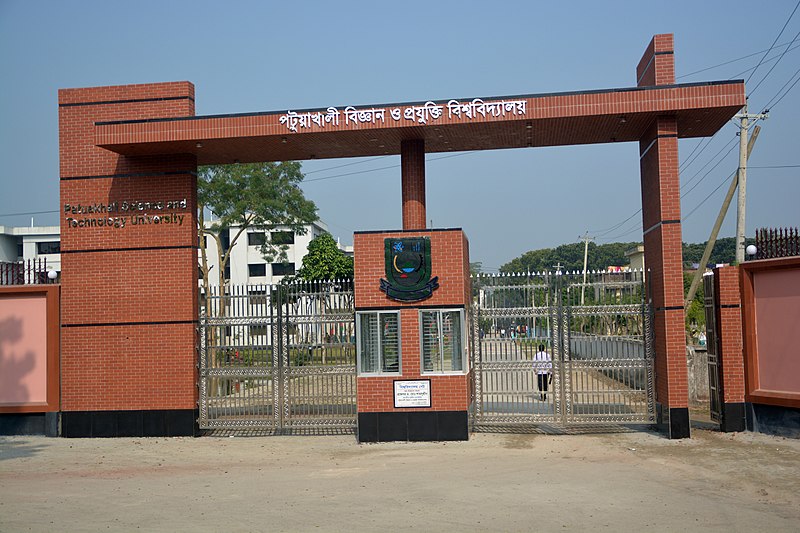
Patuakhali Science and Technology University (PSTU) Table of Contents Related Post Patuakhali Science and Technology University About Patuakhali Science and Technology University (PSTU), located in Dumki, Patuakhali, Bangladesh, is a renowned public institution dedicated to education, research, and innovation in science, technology, and agriculture. Established in 2000, PSTU is situated in a scenic environment near the coastal region, offering a serene and conducive atmosphere for academic pursuits. The university features diverse faculties, including Agriculture, Computer Science and Engineering, Business Administration, Fisheries, Veterinary Science, and Disaster Management. PSTU emphasizes a multidisciplinary approach, combining theoretical knowledge with practical applications to address real-world challenges. With state-of-the-art facilities, modern laboratories, and experienced faculty members, PSTU fosters an environment of excellence and innovation. The university offers affordable education, scholarships, and support services, ensuring access for students from diverse backgrounds. PSTU’s focus on sustainability, coastal development, and disaster management uniquely positions it as a leader in tackling regional and global challenges. Explore opportunities at PSTU for a bright future! Basic Info Official Name – Patuakhali Science and Technology University Establish Year- 2000 Official Website Link – www.pstu.ac.bd Official Facebook Link- Address- Dumki-8602, Dumki, Patuakhali PSTU University Faculties, Departments, Courses, Duration, and Fees Patuakhali Science and Technology University (PSTU), located in Dumki, Patuakhali, is a leading public university in Bangladesh. It specializes in science, technology, agriculture, and environmental studies, with a focus on coastal and disaster management. Below is an overview of the academic structure, programs, durations, and fee details. Faculties and Departments PSTU offers a variety of disciplines under its specialized faculties: Faculty of Agriculture Departments: Agronomy Soil Science Horticulture Plant Pathology Genetics and Plant Breeding Focus: Sustainable agriculture, crop improvement, and food security. Faculty of Computer Science and Engineering (CSE) Departments: Computer Science and Engineering Information and Communication Technology (ICT) Focus: Software development, artificial intelligence, and IT solutions. Faculty of Business Administration and Management Departments: Management Marketing Finance and Banking Focus: Business leadership, entrepreneurship, and financial management. Faculty of Fisheries Departments: Aquaculture Fisheries Biology and Genetics Fisheries Resource Management Focus: Marine research, sustainable fisheries, and aquaculture development. Faculty of Veterinary Medicine and Animal Science Departments: Veterinary Medicine Animal Husbandry Focus: Livestock health, veterinary practices, and animal farming. Faculty of Disaster Management Departments: Disaster Resilience Environmental Science Focus: Coastal disaster management and environmental sustainability. Courses and Duration Undergraduate Programs: Degrees Offered: BSc, BBA, BVSc, BA (Hons). Duration: 4 years (8 semesters) for most programs; 5 years for Veterinary Medicine. Postgraduate Programs: Degrees Offered: MSc, MBA, MA. Duration: 1–2 years depending on the program. PhD Programs: Offered in select fields, focusing on research and innovation. Duration: 3–5 years. Fee Structure PSTU offers affordable education, ensuring accessibility for students from diverse backgrounds. Approximate fees include: Undergraduate Programs: Admission Fee: BDT 8,000 – 12,000 (one-time). Tuition Fee: BDT 3,000 – 5,000 per semester. Lab, Library, and Examination Fees: BDT 2,000 – 4,000 per semester. Postgraduate Programs: Admission Fee: BDT 10,000 – 15,000 (one-time). Tuition Fee: BDT 5,000 – 8,000 per semester. PhD Programs: Research Fee: BDT 50,000 – 80,000 annually, depending on the field. Hostel Fees: Accommodation: BDT 1,500 – 2,500 per semester. Mess charges vary based on usage. Facilities at PSTU Modern Infrastructure: Fully equipped classrooms, libraries, and advanced laboratories. Research Centers: Specialized in agriculture, fisheries, and disaster management. Green Campus: Eco-friendly and serene environment. Scholarships: Merit-based and need-based scholarships for deserving students. Extracurricular Opportunities: Sports, cultural activities, and student clubs. Why Choose PSTU? PSTU is committed to creating future leaders in science, technology, and agriculture. Its emphasis on practical learning, cutting-edge research, and regional development makes it an excellent choice for students aspiring to make a meaningful impact. For more information, visit: www.pstu.ac.bd. PSTU University Admission Process Patuakhali Science and Technology University (PSTU) offers a transparent and merit-based admission process for undergraduate, postgraduate, and PhD programs. Below is a comprehensive guide to the admission process: Undergraduate Admission Process Eligibility Criteria: Candidates must have completed SSC and HSC (or equivalent) examinations. Minimum GPA requirements: SSC: 3.50 or above. HSC: 3.50 or above. Combined GPA: 8.00 (including optional subjects). Science background is mandatory, with key subjects like Mathematics, Physics, Chemistry, and Biology. Application Steps: Online Application: Visit the official PSTU admission portal: www.pstu.ac.bd. Fill out the online application form and upload necessary documents (e.g., SSC/HSC certificates, photos). Pay the application fee (approximately BDT 1,000 – 1,500) through mobile banking or bank deposit. Admission Test: Admission tests are conducted for subjects related to the applied faculties. Exam content typically includes Mathematics, Physics, Chemistry, Biology, and English. The test is held in November or December each year. Merit List: The merit list is published based on the admission test results and academic scores. Special quotas (e.g., for children of freedom fighters, indigenous students) are also considered. Final Admission: Selected candidates must complete final admission by submitting required documents and paying admission fees. Postgraduate Admission Process Eligibility Criteria: Candidates must have a Bachelor’s degree in a relevant field from a recognized institution. A minimum CGPA of 2.50 or equivalent is required. Application Steps: Submit an application form (online or offline) with academic credentials and a recent photograph. Pay the application fee (approximately BDT 1,500 – 2,000). Appear for an interview or written test (if applicable). Final admission is granted based on academic performance and interview results. PhD Admission Process Eligibility Criteria: A Master’s degree in a relevant field from a recognized institution. A strong academic and research background. Application Steps: Submit a detailed application with academic credentials and a research proposal. Attend an interview conducted by the academic committee. Final selection is based on research proposal evaluation and interview performance. Complete enrollment by paying research and tuition fees. Key Dates and Deadlines Admission Notice: Published in October or November. Application Deadline: Typically late November. Admission Test: Held in December. Merit List Publication: Within 1–2 weeks after the admission test. Additional Information Quota Reservations: PSTU offers reserved seats for specific quotas, such as freedom fighters’ children, indigenous students, and differently-abled candidates. Hostel Accommodation: Available for students based on availability. Scholarships: Merit-based and
Mawlana Bhashani Science & Technology University (MBSTU) – Admission, Result, Notice, Fee & Facilities
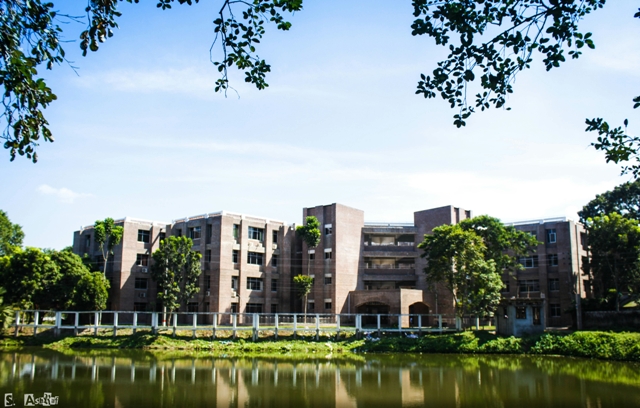
Mawlana Bhashani Science & Technology University (MBSTU) Table of Contents Related Post Mawlana Bhashani Science & Technology University About Mawlana Bhashani Science and Technology University (MBSTU), established in 1999 and located in Tangail, Bangladesh, is a premier public institution dedicated to advancing education and research in science, technology, and related fields. Named after the renowned political leader and social reformer Mawlana Abdul Hamid Khan Bhashani, the university upholds a legacy of progress and innovation. MBSTU offers a wide range of undergraduate and postgraduate programs across faculties such as engineering, life sciences, business studies, and social sciences. The university emphasizes research-driven learning, practical skills development, and community engagement, equipping students with the tools to excel in modern industries. The eco-friendly campus is equipped with state-of-the-art facilities, including advanced laboratories, libraries, and student support services. MBSTU fosters an inclusive academic environment, offering scholarships and affordable education to talented students. With a focus on sustainability and technological innovation, MBSTU is shaping skilled professionals to contribute to national and global development. Basic Info Official Name – Mawlana Bhashani Science & Technology University Establish Year- 1999 Official Website Link – mbstu.ac.bd Official Facebook Link- Address- MBSTU, Santosh, Tangail – 1902, Bangladesh Mawlana Bhashani Science & Technology University Faculties, Departments, Courses, Duration, and Fees Mawlana Bhashani Science and Technology University (MBSTU), located in Tangail, Bangladesh, is a prestigious public university focused on fostering education and research in science, technology, and innovation. Below is a comprehensive overview of its faculties, departments, academic programs, course durations, and fees. Faculties and Departments MBSTU comprises several faculties, each offering specialized programs tailored to meet academic and industry demands: Faculty of Engineering Departments: Computer Science and Engineering (CSE) Information and Communication Technology (ICT) Electrical and Electronic Engineering (EEE) Textile Engineering Focus: Advanced technologies, problem-solving, and innovation. Faculty of Life Science Departments: Biotechnology and Genetic Engineering Biochemistry and Molecular Biology Environmental Science and Resource Management Food Technology and Nutritional Science Focus: Scientific solutions for health, environment, and sustainable development. Faculty of Business Studies Departments: Business Administration Focus: Leadership, entrepreneurship, and management skills for modern businesses. Faculty of Science Departments: Mathematics Statistics Physics Chemistry Focus: Core sciences and their practical applications. Faculty of Social Science Departments: Economics Criminology and Police Science Focus: Social development, policy-making, and economic growth. Courses and Duration Undergraduate Programs: Degrees: BSc, BBA, BA (Hons). Duration: 4 years (8 semesters). Curriculum: Emphasizes theoretical knowledge, practical skills, and research projects. Postgraduate Programs: Degrees: MSc, MBA, MA. Duration: 1–2 years, depending on the program. Curriculum: Advanced coursework with research opportunities. PhD Programs: Offered in selected fields. Duration: 3–5 years, focused on in-depth research and thesis completion. Fee Structure MBSTU is committed to providing affordable education. The approximate fee structure is as follows: Undergraduate Programs: Admission Fee: BDT 8,000 – 12,000 (one-time). Tuition Fee: BDT 3,000 – 5,000 per semester. Additional Fees: Lab, library, and examination fees (BDT 2,000 – 4,000) per semester. Postgraduate Programs: Admission Fee: BDT 10,000 – 15,000 (one-time). Tuition Fee: BDT 5,000 – 8,000 per semester. PhD Programs: Admission Fee: BDT 20,000. Research Fees: BDT 50,000 – 80,000 annually, depending on the program. Hostel Fees: Accommodation: BDT 1,500 – 2,500 per semester. Mess charges vary based on usage. Facilities at MBSTU Modern Infrastructure: Well-equipped classrooms, advanced laboratories, and a central library. Research and Innovation: Focus on practical training and scientific exploration. Eco-Friendly Campus: A green and serene environment conducive to learning. Student Support Services: Scholarships, counseling, and career guidance. Extracurricular Activities: Clubs, sports facilities, and cultural programs. Why Choose MBSTU? MBSTU blends academic excellence with innovative research to prepare students for the future. Its affordable fees, comprehensive courses, and focus on real-world problem-solving make it a top choice for aspiring professionals. For detailed information, visit the official website: www.mbstu.ac.bd. MBSTU Admission Process The Mawlana Bhashani Science and Technology University (MBSTU) follows a structured, merit-based admission process for its undergraduate, postgraduate, and doctoral programs. Below is a detailed guide to the MBSTU admission process for each level of study. Undergraduate Admission Process Eligibility Criteria: SSC & HSC (or equivalent) must be completed with a minimum GPA of 3.50 in both examinations and a combined GPA of 8.00 (with additional subject requirements in science fields like Mathematics, Physics, and Chemistry). Students from Science backgrounds (with Mathematics, Physics, Chemistry, and Biology) are eligible to apply. For specific departments, candidates must meet the individual subject requirements. Application Process: Online Application: Visit the official admission portal (www.mbstu.ac.bd) and fill out the application form. Upload all required documents (e.g., photo, certificates, etc.). Pay the application fee, typically BDT 1,000 – 1,500, via the prescribed payment methods (bank deposit, mobile banking). Admission Test: Applicants must appear for an admission test, usually held in November or December. The test generally covers subjects such as Mathematics, Physics, Chemistry, Biology, and English (depending on the program applied for). Merit List: After the test, MBSTU publishes a merit list based on admission test scores and academic results. Candidates will be ranked according to their performance. Final Admission: After the merit list is published, selected candidates must complete the final admission process, including submission of documents and payment of admission fees. Documents to be submitted: SSC & HSC mark sheets, application form, photograph, and other supporting documents. Postgraduate Admission Process Eligibility Criteria: A relevant Bachelor’s degree (such as BSc, BBA, BA, or equivalent) from a recognized institution. Minimum CGPA of 2.50 on a scale of 4.00 (or equivalent). Steps to Apply: Submit an Application: Complete the online or offline application form for the respective program and faculty. Attach academic transcripts, certificates, and a recent passport-size photo. Entrance Examination/Interview: Some departments may require an entrance exam or interview to assess academic aptitude and subject knowledge. Payment: After submitting the application, pay the required application fee (BDT 1,500 – 2,000). Final Selection: Candidates are selected based on their academic performance, entrance exam results, and interview performance. Selected candidates will be notified for enrollment. PhD Admission Process Eligibility Criteria: A Master’s degree in a relevant field. A strong academic background and research
Hajee Mohammad Danesh Science & Technology University (HSTU) – Admission, Result, Notice, Fee & Facilities
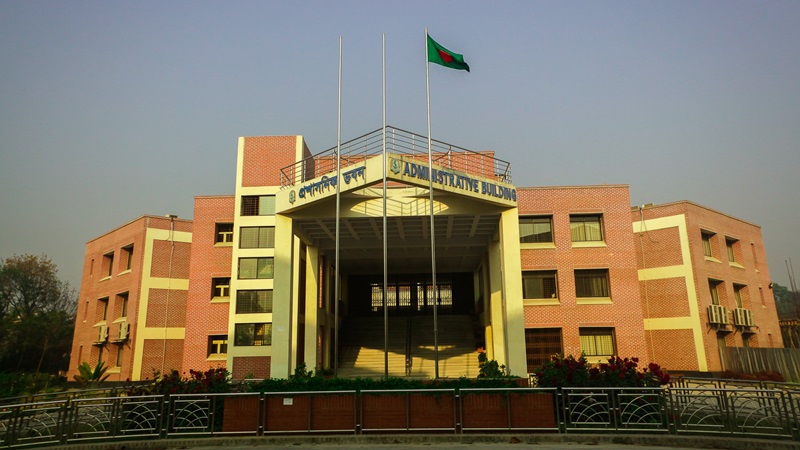
Hajee Mohammad Danesh Science & Technology University (HSTU) Table of Contents Related Post Hajee Mohammad Danesh Science & Technology University About Hajee Mohammad Danesh Science & Technology University (HSTU), located in Dinajpur, Bangladesh, is a prominent public institution dedicated to advancing education and research in science, technology, and agriculture. Established in 1999, the university is named after Hajee Mohammad Danesh, a notable figure in Bangladesh’s independence movement. HSTU offers a wide range of undergraduate and postgraduate programs in disciplines such as agriculture, engineering, veterinary science, business, social sciences, and computer science. The university is known for its modern curriculum, state-of-the-art laboratories, and emphasis on research and innovation. Situated on a lush green campus, HSTU provides a conducive environment for academic and personal growth. The university prioritizes practical learning, skill development, and community engagement, preparing students to address real-world challenges. With affordable education, scholarships, and experienced faculty, HSTU is committed to shaping skilled professionals and contributing to national development. Basic Info Official Name – Hajee Mohammad Danesh Science & Technology University Establish Year- 1990 Official Website Link – www.hstu.ac.bd Official Facebook Link- Address- Hajee Mohammad Danesh Science and Technology University (HSTU), Dinajpur-5200, Bangladesh HSTU University Faculties, Departments, Courses, Duration, and Fees Hajee Mohammad Danesh Science & Technology University (HSTU), situated in Dinajpur, Bangladesh, is a leading public institution offering a wide range of academic programs. Its emphasis on research, practical education, and technological innovation prepares students for modern challenges. Below is an overview of its faculties, departments, courses, durations, and fees. Faculties and Departments HSTU has several faculties, each focusing on different academic disciplines: Faculty of Agriculture Departments: Agronomy Soil Science Plant Pathology Horticulture Genetics and Plant Breeding Focus: Sustainable agriculture, food security, and research-driven solutions. Faculty of Computer Science and Engineering (CSE) Departments: Computer Science and Engineering Information and Communication Technology (ICT) Focus: Software development, AI, and IT solutions. Faculty of Veterinary and Animal Science Departments: Veterinary Medicine Animal Science Dairy and Poultry Science Focus: Livestock health, veterinary practices, and sustainable animal farming. Faculty of Engineering Departments: Civil Engineering Mechanical Engineering Electrical and Electronic Engineering Focus: Infrastructure development, technology, and engineering solutions. Faculty of Business Studies Departments: Management Marketing Finance and Banking Focus: Business leadership, entrepreneurship, and financial analysis. Faculty of Fisheries Departments: Aquaculture Fish Biology and Genetics Focus: Sustainable fisheries management and marine research. Faculty of Science Departments: Physics Chemistry Mathematics Focus: Core sciences with applications in technology and innovation. Courses and Duration Undergraduate Programs Degrees: BSc, BBA, BSS, BVSc, etc. Duration: 4 years (8 semesters) for most programs; 5 years for Veterinary Science. Postgraduate Programs Degrees: MSc, MBA, MA, MPhil, and PhD. Duration: MSc/MBA: 2 years (4 semesters). MPhil/PhD: 2–4 years depending on the research area. Fee Structure HSTU offers affordable education to ensure accessibility. Fees may vary based on the program: Undergraduate Programs: Admission Fee: BDT 10,000 – 15,000 (one-time). Tuition Fee: BDT 3,000 – 5,000 per semester. Additional Fees: Examination, lab, and library fees (BDT 2,000 – 4,000) per semester. Postgraduate Programs: Admission Fee: BDT 15,000 – 20,000. Tuition Fee: BDT 5,000 – 8,000 per semester. Hostel Fees: Accommodation: BDT 1,000 – 2,000 per semester. Mess charges: Vary based on usage. Facilities at HSTU Modern Infrastructure: Well-equipped classrooms, laboratories, and libraries. Research Centers: Advanced facilities for agricultural, engineering, and scientific research. Experimental Farms: Hands-on agricultural training. Scholarships: Merit- and need-based financial assistance for deserving students. Hostels and Sports: Comfortable accommodation and facilities for extracurricular activities. Why Choose HSTU? Emphasis on research-driven education. Diverse programs catering to modern career demands. Affordable fees with quality facilities. Green campus fostering holistic growth. For more details, visit the official website: www.hstu.ac.bd. HSTU University Admission Process Hajee Mohammad Danesh Science & Technology University (HSTU) follows a transparent, merit-based admission process for undergraduate, postgraduate, and doctoral programs. Below is a detailed overview of the admission steps for each academic level. Undergraduate Admission Process Eligibility Criteria: Applicants must have completed SSC and HSC (or equivalent) with a science background. Minimum GPA of 3.50 in both SSC and HSC, with a combined GPA of 8.00 or above. Specific subject requirements (e.g., Mathematics, Physics, Chemistry, and Biology). Application Process: Online Application: Visit HSTU’s official admission portal (www.hstu.ac.bd). Fill out the application form and upload required documents (photo, academic certificates, etc.). Pay the application fee (usually BDT 1,000 – 1,500) via mobile banking or bank deposit. Admission Test: Applicants must appear for the admission test, typically held in November-December. The test assesses knowledge in subjects like Mathematics, Physics, Chemistry, Biology, and English. Merit List: A merit list is published based on admission test scores and academic results. Separate lists are prepared for quotas, such as freedom fighters’ children and indigenous candidates. Final Admission: Selected candidates complete the final admission process by submitting documents and paying the admission fees. Postgraduate Admission Process Eligibility Criteria: A relevant bachelor’s degree from a recognized institution. Minimum CGPA of 2.50 (or equivalent). Steps to Apply: Submit an online or offline application to the respective faculty. Pay the application fee and attach required documents (transcripts, certificates, etc.). Appear for an entrance exam or interview (if required). Successful candidates complete enrollment by paying semester fees. PhD Admission Process Eligibility Criteria: A Master’s degree in a relevant field. A strong academic and research background with a research proposal. Steps to Apply: Submit a detailed application with academic credentials and research proposal. Attend an interview with the academic committee. After approval, complete enrollment by paying research and tuition fees. Key Dates and Notices Admission Notice: Published in September/October each year. Application Deadline: Typically in November. Test and Results: Held in December, with results published shortly after. HSTU ensures equal opportunities for all eligible candidates through a fair and accessible admission process. For updates, visit the official website: www.hstu.ac.bd. HSTU University Campus Facilities Library Laboratories Hostel Computer Lab Auditorium Play Ground Medical Cultural Green Environment Transport Key Points HSTU University Admission FAQs HSTU University Admission
Bangabandhu Sheikh Mujibur Rahman Agricultural University (BSMRAU)- Admission, Result, Notice, Fee & Facilities
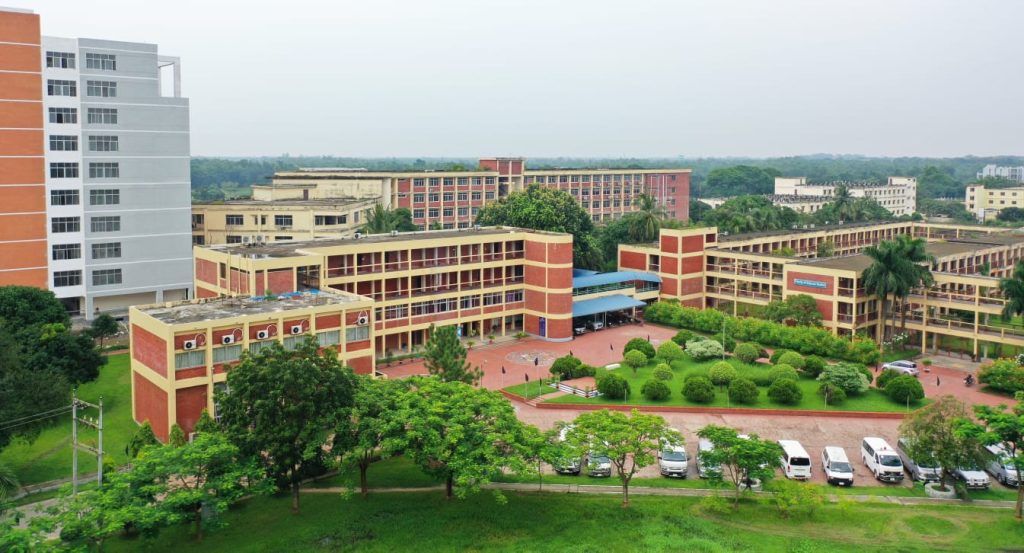
Bangabandhu Sheikh Mujibur Rahman Agricultural University (BSMRAU) Table of Contents Related Post Bangabandhu Sheikh Mujibur Rahman Agricultural University About Bangabandhu Sheikh Mujibur Rahman Agricultural University (BSMRAU), established in 1998 and located in Gazipur, Bangladesh, is a premier institution dedicated to advancing agricultural education, research, and development. Named after the Father of the Nation, Bangabandhu Sheikh Mujibur Rahman, the university aims to revolutionize the agricultural sector in Bangladesh through innovation and excellence. BSMRAU offers a wide range of undergraduate and postgraduate programs in disciplines such as agriculture, fisheries, veterinary science, and environmental sciences. The university boasts a state-of-the-art campus equipped with modern laboratories, advanced research facilities, and experimental farms to provide practical and theoretical knowledge. Committed to addressing challenges like food security, climate change, and sustainable development, BSMRAU emphasizes research-driven solutions and community outreach. With experienced faculty, affordable education, and scholarship opportunities, BSMRAU fosters a vibrant academic environment for nurturing future leaders in agriculture and rural development. Basic Info Official Name – Bangabandhu Sheikh Mujibur Rahman Agricultural University Establish Year- 1998 Official Website Link – bsmrau.edu.bd Official Facebook Link- Address- Bangabandhu Sheikh Mujibur Rahman Agricultural University Salna,Gazipur-1706, Bangladesh. BSMRAU University Faculties, Departments, Courses, Duration, and Fees Bangabandhu Sheikh Mujibur Rahman Agricultural University (BSMRAU), located in Gazipur, Bangladesh, is one of the country’s leading institutions for agricultural education and research. BSMRAU offers a wide range of academic programs tailored to meet the needs of the agricultural and rural development sectors. Below is a detailed overview of the faculties, departments, courses, duration, and fee structure at BSMRAU. Faculties and Departments BSMRAU comprises several faculties, each dedicated to specific disciplines in agriculture, science, and technology: Faculty of Agriculture Departments: Agronomy Soil Science Crop Botany Plant Pathology Entomology Horticulture Genetics and Plant Breeding Focus: Modern farming techniques, crop production, and sustainable agriculture. Faculty of Fisheries Departments: Aquaculture Fisheries Management Fish Biology and Genetics Fisheries Technology Focus: Aquatic resources, sustainable fisheries management, and marine biology. Faculty of Veterinary Medicine and Animal Science Departments: Veterinary Pathology Animal Nutrition Veterinary Surgery Poultry Science Focus: Livestock, veterinary sciences, and animal health care. Faculty of Agroforestry and Environment Departments: Agroforestry Environmental Science Climate Change and Disaster Management Focus: Environmental conservation, forestry, and climate resilience. Faculty of Graduate Studies Offers advanced degrees such as MSc and PhD across multiple disciplines. Courses and Duration Undergraduate Programs: Bachelor of Science (BSc) in Agriculture, Fisheries, Veterinary Science, and Agroforestry. Duration: 4 years (8 semesters). Curriculum includes theoretical knowledge, practical sessions, and fieldwork. Postgraduate Programs: Master of Science (MSc) in various disciplines such as Agronomy, Aquaculture, and Veterinary Sciences. Duration: 2 years (4 semesters). Focus: Research-based learning and specialization. Doctor of Philosophy (PhD): Available across multiple fields of study. Duration: 3–5 years (research-intensive). Fee Structure BSMRAU offers affordable education to make quality learning accessible to all. Below is the approximate fee structure: Undergraduate Programs: Admission Fee: BDT 10,000 – 15,000 (one-time). Tuition Fee: BDT 5,000 – 8,000 per semester. Additional Fees: Examination, library, and lab fees amount to BDT 2,000 – 4,000 per semester. Postgraduate Programs (MSc): Admission Fee: BDT 15,000 (one-time). Tuition Fee: BDT 8,000 – 12,000 per semester. PhD Programs: Admission Fee: BDT 20,000. Research and Tuition Fees: Approximately BDT 50,000 – 80,000 annually, depending on the research area. Facilities BSMRAU provides world-class facilities to support its academic programs: Laboratories and Research Centers: Equipped with advanced technology for agricultural and veterinary studies. Experimental Farms: Used for hands-on training and research projects. Library: Houses a rich collection of books, journals, and digital resources. Hostels: Affordable, gender-segregated accommodation with dining and recreational facilities. Sports and Extracurriculars: Facilities for sports, cultural activities, and student clubs. Why Choose BSMRAU? Research Focus: Emphasis on solving real-world agricultural and environmental challenges. Experienced Faculty: A dedicated team of professionals with expertise in their fields. Affordable Education: Cost-effective programs with scholarship opportunities for meritorious and financially disadvantaged students. Green Campus: Eco-friendly and conducive to learning. By blending academic rigor with practical applications, BSMRAU continues to shape future leaders in agriculture, fisheries, and environmental management. For more details, visit the official website at www.bsmrau.edu.bd. BSMRAU University Admission Process The admission process at Bangabandhu Sheikh Mujibur Rahman Agricultural University (BSMRAU) is competitive, transparent, and merit-based, ensuring opportunities for students from diverse backgrounds. The university offers undergraduate, postgraduate, and doctoral programs across its faculties. Below is an overview of the admission process for each level of study. Undergraduate Admission Process Eligibility Criteria: Applicants must have passed SSC and HSC (or equivalent) examinations. A minimum GPA of 3.50 in both SSC and HSC, with a combined GPA of 8.00 or above. Science background in HSC, with Biology, Chemistry, Physics, and Mathematics as subjects. Steps to Apply: Online Application: Visit the official website (www.bsmrau.edu.bd). Complete the online application form with accurate details. Pay the application fee (usually BDT 1,000–1,500) via mobile banking or bank deposit. Admission Test: Appear for the admission test, typically held in November-December. The test includes subjects like Biology, Chemistry, Physics, Mathematics, and English. Merit List Publication: The merit list is published based on admission test scores and previous academic performance. Final Admission: Selected candidates complete admission by paying the required fees and submitting documents. Postgraduate Admission Process Eligibility Criteria: A Bachelor’s degree in a relevant field from a recognized institution. Minimum CGPA of 2.75 on a 4.00 scale (or equivalent). Steps to Apply: Submit an online or offline application through the respective faculty. Pay the application fee and provide academic transcripts, certificates, and a statement of purpose. Some programs may require a written test or interview. Selected candidates complete the enrollment process after notification of acceptance. PhD Admission Process Eligibility Criteria: A Master’s degree in a relevant field. Strong academic and research background, with a research proposal. Steps to Apply: Submit the application along with the research proposal and academic documents. Attend an interview with the academic committee. Upon approval, complete enrollment by paying the tuition and research fees. Additional Information Quota System: BSMRAU reserves seats for students from specific quotas, such as children of freedom fighters and indigenous communities. Key
Bangabandhu Sheikh Mujib Medical University (BSMMU) – Admission, Result, Notice, Fee & Facilities
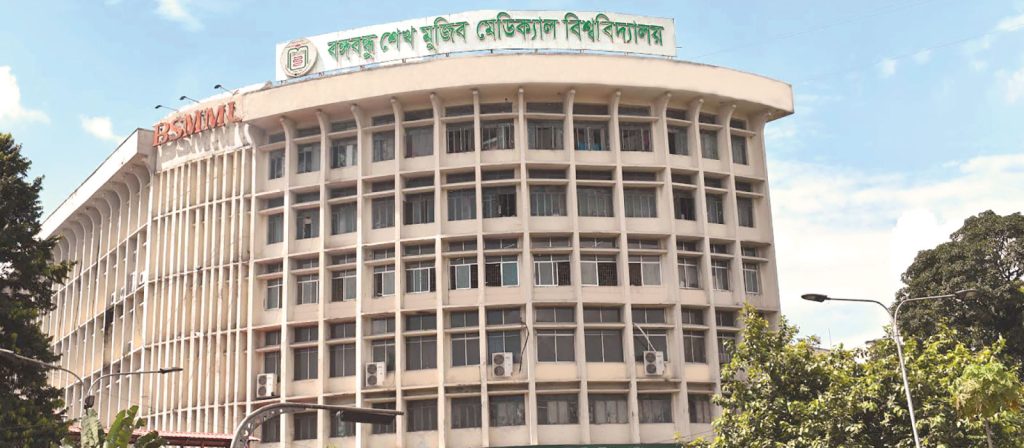
Bangabandhu Sheikh Mujib Medical University (BSMMU) Table of Contents Related Post BSMMU About Bangabandhu Sheikh Mujib Medical University (BSMMU), located in Dhaka, is the leading institution for postgraduate medical education and research in Bangladesh. Established in 1998, BSMMU is dedicated to advancing the standards of healthcare, medical education, and research in the country. The university offers a wide range of postgraduate programs, including MD, MS, MPhil, MPH, and PhD, as well as specialized diplomas across various medical fields. BSMMU is home to a modern, multidisciplinary hospital that provides advanced healthcare services, catering to both common and complex medical needs. The university boasts state-of-the-art facilities, experienced faculty, and an active research environment, making it a hub for medical innovation and excellence. Beyond academics, BSMMU plays a significant role in public health initiatives and policy development. Committed to improving healthcare outcomes, BSMMU continues to be a beacon of medical education, research, and service in Bangladesh and beyond. Basic Info Official Name – Bangabandhu Sheikh Mujib Medical University Establish Year- 1998 Official Website Link – bsmmu.ac.bd Official Facebook Link- Address- Bangabandhu Sheikh Mujib Medical University (BSMMU) Shahbag, Dhaka-1000 BSMMU Faculties, Departments, Courses, Duration, and Fees Bangabandhu Sheikh Mujib Medical University (BSMMU), based in Dhaka, is a premier institution for postgraduate medical education, offering a variety of programs across multiple faculties and departments. Below is an overview of its academic structure, courses, duration, and fees. 1. Faculties and Departments BSMMU has specialized faculties encompassing numerous departments focused on advanced medical education and research. Faculty Departments Faculty of Medicine Cardiology, Neurology, Gastroenterology, Nephrology, Endocrinology, Pulmonology, Internal Medicine Faculty of Surgery General Surgery, Orthopedic Surgery, Neurosurgery, Cardiothoracic Surgery, Urology, Plastic Surgery Faculty of Basic Sciences Anatomy, Biochemistry, Microbiology, Pathology, Pharmacology Faculty of Dentistry Oral Surgery, Orthodontics, Periodontology, Prosthodontics, Endodontics Faculty of Public Health Public Health, Community Medicine, Epidemiology, Health Systems Management Faculty of Nursing Advanced Nursing Practices, Midwifery 2. Courses Offered Postgraduate Medical Programs Doctor of Medicine (MD) Specializations: Cardiology, Neurology, Gastroenterology, etc. Duration: 3–5 years Master of Surgery (MS) Specializations: General Surgery, Orthopedics, Neurosurgery, etc. Duration: 3–5 years Master of Philosophy (MPhil) Specializations: Anatomy, Biochemistry, Microbiology, etc. Duration: 2–3 years Master of Public Health (MPH) Focus: Public Health, Epidemiology, Health Systems. Duration: 1–2 years Diploma Programs Offered in specific medical fields like Dermatology, Radiology, and Child Health. Duration: 1–2 years PhD Programs Research-oriented programs in various medical and health science disciplines. Duration: 3–5 years 3. Duration and Fees Program Duration Approximate Fees (BDT) MD/MS 3–5 years 4,00,000 – 8,00,000 MPhil 2–3 years 2,50,000 – 4,50,000 MPH 1–2 years 2,00,000 – 3,00,000 Diploma Programs 1–2 years 1,50,000 – 2,50,000 PhD 3–5 years 5,00,000 – 10,00,000 Note: Fees vary depending on the program and specialization. Scholarships or financial aid may be available for eligible candidates. 4. Key Features State-of-the-Art Facilities: Modern laboratories, specialized hospitals, and research centers. Highly Experienced Faculty: Renowned specialists in various medical fields. Research Opportunities: Access to advanced research facilities for innovative studies. BSMMU is a hub for excellence in medical education, research, and healthcare services, making it the top choice for aspiring medical professionals and researchers. For detailed admission and program updates, visit the BSMMU official website. BSMMU Admission Process BSMMU offers a structured and competitive admission process for its postgraduate, diploma, and doctoral programs in medical sciences. Below is a detailed outline of the admission process: 1. Eligibility Criteria For MD/MS Programs Must have an MBBS degree from a recognized medical college. Registration with the Bangladesh Medical and Dental Council (BMDC) is mandatory. Completion of a one-year internship. A minimum GPA or equivalent as specified in the admission circular. For MPhil Programs A relevant MBBS, BDS, or equivalent degree. Registration with BMDC. Prior academic and research experience may be required for specific fields. For MPH Programs MBBS or equivalent degree, or relevant qualifications in public health. Work experience in the healthcare sector is often preferred. For Diploma Programs MBBS degree and BMDC registration. Additional requirements may apply based on the specific program. For PhD Programs A master’s degree (MD/MS/MPhil or equivalent) in a related field. Demonstrated research experience and a relevant proposal. 2. Application Process Online Application Visit the official BSMMU website (www.bsmmu.edu.bd). Fill out the application form with personal, academic, and professional details. Upload required documents (certificates, transcripts, BMDC registration, etc.). Application Fee Payment Pay the non-refundable application fee (usually BDT 2,000–3,000) through designated banking or mobile banking services. Document Submission Submit hard copies of required documents, if specified, to the respective department or university office. 3. Admission Test Applicants must appear for a written admission test conducted by BSMMU. Subjects: The test usually covers topics relevant to the chosen specialization. Format: Multiple-choice questions (MCQs) and/or short-answer questions. Passing Score: As specified in the circular. 4. Merit List and Interview BSMMU publishes a merit list based on the admission test results. Shortlisted candidates may need to attend an interview or viva. 5. Final Selection and Enrollment Selected candidates must complete the admission process by: Submitting all required documents (e.g., academic certificates, BMDC registration, photos). Paying the initial tuition fee or admission fee. 6. Key Dates Application Period: Announced in the official circular (usually mid-year for most programs). Admission Test: Conducted within 1–2 months of the application deadline. Result Publication: Published on the BSMMU website and notice boards. Required Documents MBBS/BDS certificate and transcript. BMDC registration certificate. Internship completion certificate. Recent passport-sized photographs. Payment receipt for the application fee. 7. Admission for International Students International students are welcome to apply but must meet equivalent eligibility requirements. English proficiency (e.g., IELTS/TOEFL) may be required. Additional Information For the latest updates, admission notices, and program-specific details, regularly visit the official BSMMU website or contact the admission office. BSMMU Campus Facilities Library Laboratories Hostel Computer Lab Auditorium Play Ground Medical Cultural Green Environment Transport Key Points BSMMU Admission FAQs BSMMU Admission
Bangladesh Open University – Admission, Result, Notice, Fee & Facilities
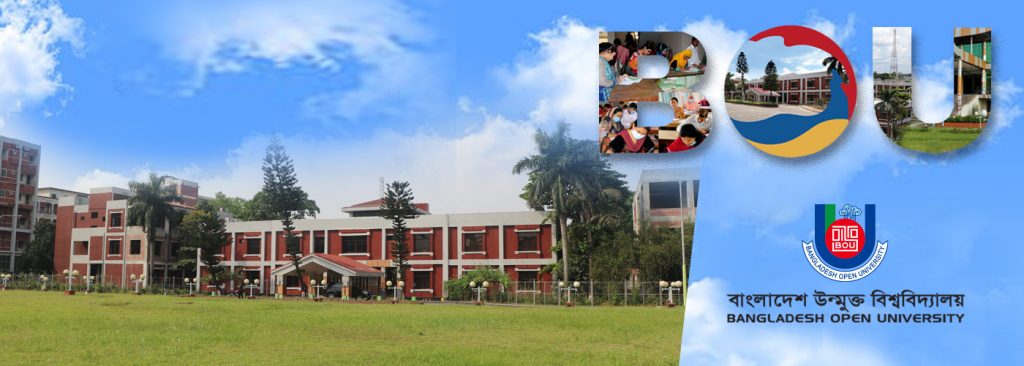
Bangladesh Open University Table of Contents Related Post Bangladesh Open University About Bangladesh Open University (BOU), established in 1992, is the only public institution in Bangladesh dedicated to distance learning. It aims to provide affordable, flexible, and accessible education to learners from diverse backgrounds, breaking barriers of time, location, and socio-economic constraints. With its headquarters in Gazipur, BOU offers programs ranging from certificate and diploma courses to undergraduate and postgraduate degrees in disciplines such as arts, business, science, education, and technology. BOU employs innovative teaching methods, combining printed study materials, online learning platforms, and multimedia content to ensure effective education delivery. A vast network of regional centers, tutorial centers, and examination venues supports its nationwide reach. Designed to meet the needs of working professionals, rural populations, and non-traditional students, BOU’s programs emphasize self-paced learning. By bridging educational gaps and fostering lifelong learning, Bangladesh Open University significantly contributes to individual empowerment and national development. Basic Info Official Name – Bangladesh Open University Establish Year- 1992 Official Website Link – www.bou.ac.bd Official Facebook Link- Address- Bangladesh Open University, Board Bazar, Gazipur-1705, Bangladesh Bangladesh Open University Faculties, Departments, Courses, Duration, and Fees Bangladesh Open University (BOU), the premier institution for distance education in Bangladesh, offers a wide array of academic programs across various disciplines. With a learner-centric approach, BOU caters to students from all walks of life, providing accessible and affordable education. Here’s an overview of its faculties, departments, courses, durations, and fees. Faculties and Departments BOU has six faculties, each offering diverse academic programs designed to meet the needs of its learners: School of Education (SoE) Programs: Diploma in Education (DPEd), Bachelor of Education (BEd), Master of Education (MEd). Focus: Teacher training and professional development for educators. School of Social Science, Humanities, and Language (SSHL) Programs: Bachelor of Arts (BA), Bachelor of Social Science (BSS), Master of Arts (MA), Certificate in Spoken English. Focus: Social science, language, and humanities studies. School of Business (SoB) Programs: Bachelor of Business Studies (BBS), Master of Business Administration (MBA), Certificate in Business Studies (CBS). Focus: Business management, entrepreneurship, and leadership. School of Science and Technology (SST) Programs: Bachelor of Science in Nursing (BSN), Bachelor of Science (BSc), Diploma in Computer Science. Focus: Science, technology, and health sciences. School of Agriculture and Rural Development (SARD) Programs: Certificate, Diploma, and Bachelor of Science in Agriculture (BScAg). Focus: Agricultural innovation and rural development. School of Law (SoL) Programs: Bachelor of Law (LLB). Focus: Legal studies and judicial systems. Courses and Duration Certificate Programs: Duration: 6 months to 1 year. Example: Certificate in Business Studies, Spoken English, Agriculture. Diploma Programs: Duration: 1–2 years. Example: Diploma in Education, Computer Science. Undergraduate Programs: Duration: 3–4 years. Example: BBS, BA, BSS, BSc, BScAg, BSN, LLB. Postgraduate Programs: Duration: 1–2 years. Example: MBA, MA, MEd. Fee Structure BOU offers highly affordable education. Fees vary by program and level of study: Certificate Programs: Admission Fee: BDT 1,000 – 2,000. Tuition Fee: BDT 3,000 – 5,000 for the entire program. Diploma Programs: Admission Fee: BDT 2,000 – 3,000. Tuition Fee: BDT 8,000 – 15,000, depending on the program. Undergraduate Programs: Admission Fee: BDT 2,000 – 5,000. Tuition Fee: BDT 10,000 – 30,000 for the full program, depending on the discipline. Postgraduate Programs: Admission Fee: BDT 5,000 – 10,000. Tuition Fee: BDT 20,000 – 50,000 for the entire program. Special Features of BOU Programs Flexible Learning: Self-paced learning materials allow students to study at their convenience. Multimedia Support: Video lectures, radio broadcasts, and online resources supplement printed materials. Nationwide Reach: BOU has a network of 12 regional centers and 80+ tutorial centers across Bangladesh, ensuring accessibility to education. Affordable Fees: The cost-effective fee structure ensures quality education for students from diverse socio-economic backgrounds. Recognition: BOU degrees are recognized by public and private organizations in Bangladesh and abroad. Why Choose Bangladesh Open University? Inclusivity: Programs designed for working professionals, rural students, and those unable to pursue traditional education. Wide Range of Courses: From agriculture to business, BOU provides options for learners with varying interests. Lifelong Learning: Opportunities for skill development, academic growth, and career advancement. Bangladesh Open University continues to empower individuals and communities through innovative education, contributing significantly to the nation’s development. For more information, visit www.bou.edu.bd. Bangladesh Open University Admission Process The admission process at Bangladesh Open University (BOU) is designed to be flexible, inclusive, and accessible to a wide range of learners. With programs catering to different academic and professional needs, BOU ensures a hassle-free experience for applicants. Steps for Admission Program Selection: Applicants should review BOU’s diverse offerings, including certificate, diploma, undergraduate, and postgraduate programs. Program details, eligibility criteria, and deadlines are available on the official website (www.bou.edu.bd) or regional centers. Application Form Submission: Visit the nearest BOU regional or tutorial center or the official website to collect/download the application form. Fill out the form with accurate personal and academic details. Attach required documents, including copies of academic certificates, recent photographs, and identification proof. Fee Payment: Pay the application fee via the specified payment methods, such as mobile banking (bKash, Rocket) or bank deposit. Attach the payment slip to the application form. Submission: Submit the completed application form to the designated regional center within the specified timeline. Admission Confirmation: After verification, eligible candidates receive an offer letter confirming their admission. Enrollment: Upon receiving admission confirmation, students complete enrollment by paying the semester or course fees and collecting study materials. Additional Information Admission is generally open twice a year, in January-June and July-December sessions. Some programs may require entry tests or interviews, particularly postgraduate or professional courses. BOU’s straightforward admission process ensures that anyone seeking quality education has the opportunity to pursue their academic goals. Bangladesh Open University Campus Facilities Library Laboratories Hostel Computer Lab Auditorium Play Ground Medical Cultural Green Environment Transport Key Points Bangladesh Open University Admission FAQs Bangladesh Open University Admission
National University (NU) – Admission, Result, Notice, Fee & Facilities
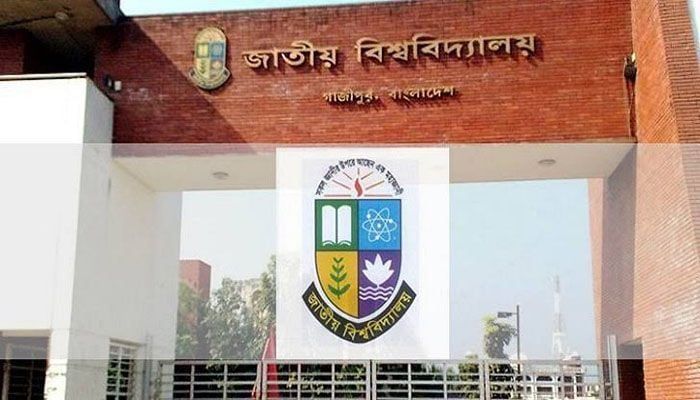
Find Top Schools, Colleges & Universities in Bangladesh About National University Bangladesh’s National University (NU), established in 1992, is dedicated to providing affordable and accessible higher education across the country, primarily through its vast network of affiliated colleges. As one of the largest public universities globally, NU educates millions of students each year in a diverse range of programs, including undergraduate, graduate, and diploma courses in disciplines such as Arts, Science, Business, Social Science, Law, and Education. The university’s mission is to democratize education by reaching students from urban and rural areas alike, making quality education available to all, regardless of socioeconomic background. National University offers both academic and vocational courses, designed to balance theoretical understanding with practical skills essential for today’s job market. NU’s curriculum is regularly updated to align with global educational standards and the evolving demands of Bangladesh’s workforce. Additionally, NU emphasizes personal growth through extracurricular activities, sports, and community service initiatives, aiming to cultivate well-rounded graduates. With a growing focus on digital transformation, the university has incorporated online resources and e-learning platforms to enhance accessibility and flexibility for students. National University’s commitment to expanding educational access plays a vital role in Bangladesh’s socio-economic development, producing skilled graduates ready to contribute to the nation’s progress. Type Public University Affiliated Colleges Table of Contents Official Name – National University Establish Year – 1992 Official Website link – www.nu.ac.bd Official Facebook link – Address National University, Gazipur-1704, Bangladesh National University Courses, Duration, Fee Bangladesh’s National University (NU) offers a variety of courses through its affiliated colleges across the country, catering to a wide range of disciplines at undergraduate, graduate, and diploma levels. Here’s an overview of the primary programs, their durations, and typical fee structures: Undergraduate Programs Bachelor of Arts (BA) Duration: 3 years (Honours); 4 years with an Honours specialization Fee: Around BDT 10,000–15,000 per year for general courses, depending on the college Bachelor of Science (BSc) Duration: 3–4 years Fee: Approximately BDT 12,000–20,000 per year Bachelor of Commerce (BCom) / Bachelor of Business Studies (BBS) Duration: 3–4 years Fee: Roughly BDT 10,000–18,000 per year Bachelor of Social Science (BSS) Duration: 3–4 years Fee: About BDT 10,000–15,000 per year Bachelor of Laws (LLB) Duration: 4 years Fee: Typically BDT 15,000–20,000 per year Bachelor of Education (B.Ed) Duration: 1 year (postgraduate for students with a previous degree) Fee: Around BDT 10,000–12,000 for the program Graduate Programs Master of Arts (MA) Duration: 1–2 years, depending on previous degree Fee: Approximately BDT 12,000–20,000 per year Master of Science (MSc) Duration: 1–2 years Fee: Around BDT 15,000–25,000 per year Master of Business Studies (MBS) Duration: 1–2 years Fee: Generally BDT 12,000–20,000 per year Master of Social Science (MSS) Duration: 1–2 years Fee: Roughly BDT 12,000–20,000 per year Master of Laws (LLM) Duration: 1 year (for students with an LLB Honours degree) Fee: Typically BDT 15,000–25,000 per year Diploma and Specialized Programs Postgraduate Diploma in Library and Information Science Duration: 1 year Fee: Around BDT 10,000–15,000 for the program Diploma in Computer Science Duration: 1 year Fee: Approximately BDT 12,000–18,000 Bachelor of Physical Education (BPEd) Duration: 1 year Fee: Around BDT 10,000–12,000 Additional Information Fees: The fees mentioned are approximate and may vary by college. Private colleges affiliated with National University may have higher fees than public institutions. Scholarships: Many affiliated colleges offer merit-based and need-based scholarships to support students financially. Facilities and Resources: Students have access to college libraries, laboratories, and sometimes digital resources for flexible learning. For exact details on fees, duration, and admission procedures, prospective students should check with the specific college they are interested in, as costs and structures may differ based on location and institution type. National University Faculty and Department Bangladesh’s National University (NU) is a vast network comprising numerous faculties and departments across a variety of disciplines. Each affiliated college under the NU system offers programs in specialized fields, contributing to a rich academic environment. Here’s a general breakdown of the faculties and departments within the National University: 1. Faculty of Arts and Humanities Departments: Bengali English Philosophy History Sociology Political Science Islamic History and Culture Psychology Arabic Music Fine Arts Education 2. Faculty of Science Departments: Physics Chemistry Mathematics Zoology Botany Computer Science and Engineering Environmental Science Geography and Environment Statistics Microbiology Biotechnology 3. Faculty of Business Studies Departments: Accounting Management Finance Marketing Human Resource Management International Business Banking and Insurance Business Administration 4. Faculty of Social Science Departments: Economics Sociology Social Work Anthropology Social Science Education Development Studies Public Administration 5. Faculty of Law Departments: Law (LLB & LLM Programs) Criminal Law Constitutional Law International Law Human Rights Law 6. Faculty of Education Departments: Education Physical Education Pedagogy Special Education Educational Psychology 7. Faculty of Medicine (Offered by Affiliated Medical Colleges) Departments: General Medicine Surgery Obstetrics and Gynecology Pediatrics Psychiatry Orthopedics Pharmacology Pathology Microbiology 8. Faculty of Engineering and Technology Departments: Civil Engineering Electrical and Electronic Engineering Mechanical Engineering Computer Science and Engineering Environmental Engineering Information and Communication Technology (ICT) 9. Faculty of Agriculture and Rural Development Departments: Agriculture Agricultural Economics Agricultural Engineering Rural Development 10. Faculty of Health and Life Sciences Departments: Nursing Public Health Pharmacy Biomedical Science 11. Faculty of Fine Arts Departments: Sculpture Painting Graphic Design Applied Arts Art History General Structure Each department offers specialized programs at the undergraduate and postgraduate levels, contributing to a diverse range of academic disciplines. The National University strives to provide a balanced and practical education through these departments, preparing students for various fields in both public and private sectors. It also offers interdisciplinary studies, catering to evolving job markets and technological advancements. Additionally, the faculties are supported by experienced and qualified academic staff, including professors, associate professors, assistant professors, and lecturers, who are dedicated to delivering quality education and research in their respective fields. For specific details on faculty members, curriculum, and courses, students are encouraged to visit the National University’s official website or contact the affiliated colleges. Admission Process The admission process for Bangladesh’s National University (NU) is structured to
Khulna University (KU) – Admission, Result, Notice, Fee & Facilities
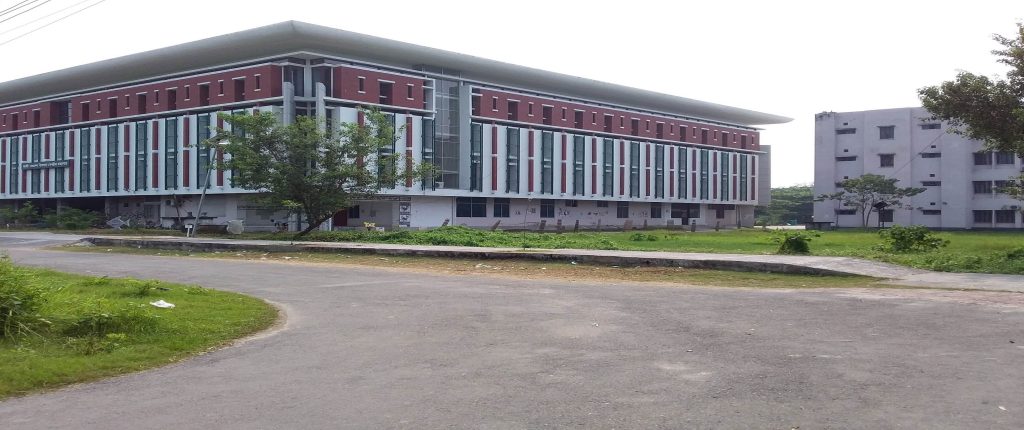
Khulna University Table of Contents Related Post Khulna University About Khulna University, established in 1991, is a renowned public university located in the southwestern region of Bangladesh. Known for its uninterrupted academic environment, the university operates free from political unrest, fostering an ideal atmosphere for learning and research. Situated along the scenic Mayur River, Khulna University boasts an eco-friendly campus with modern facilities. The university is organized into eight schools and 29 disciplines, offering diverse undergraduate and postgraduate programs in science, engineering, arts, business, and life sciences. It emphasizes research and innovation, contributing significantly to national development and global knowledge. Khulna University is committed to creating future-ready graduates with strong ethical and leadership qualities. It promotes a vibrant student life with clubs, extracurricular activities, and community engagement programs. Affordable tuition fees and various scholarships make it accessible to students from all backgrounds. Khulna University is a hub of excellence, blending academic rigor with a sustainable and inclusive vision. Basic Info Official Name – Khulna University Establish Year- 1991 Official Website Link – ku.ac.bd Official Facebook Link- Address- Khulna University, Khulna-9208, Bangladesh Khulna University Faculties, Departments, Courses, Duration, and Fees Khulna University, established in 1991, is one of the leading public universities in Bangladesh. It offers a wide range of academic programs across diverse disciplines, fostering a unique combination of quality education and research opportunities. Below is a comprehensive guide to its faculties, departments, courses, durations, and fees. Faculties and Departments School of Science, Engineering, and Technology (SET) Departments: Computer Science and Engineering (CSE) Electronics and Communication Engineering (ECE) Mathematics Physics Chemistry Statistics Focus: Science and technological advancement, fostering innovation in engineering and research. School of Life Science (SLS) Departments: Biotechnology and Genetic Engineering Environmental Science Fisheries and Marine Resources Technology Agrotechnology Forestry and Wood Technology Focus: Life sciences, environmental studies, and sustainable development. School of Management and Business Administration (MBA) Departments: Business Administration Focus: Business leadership, finance, marketing, and management principles. School of Arts and Humanities (SAH) Departments: Bangla English History and Civilization Focus: Cultural, linguistic, and historical studies. School of Social Science (SSS) Departments: Sociology Economics Development Studies Urban and Rural Planning (URP) Focus: Social, economic, and urban planning studies. School of Law Department: Law and Justice Focus: Legal studies, justice systems, and policy formulation. School of Fine Arts Departments: Drawing and Painting Focus: Creative expression and art education. Courses and Duration Undergraduate Programs: Degrees Offered: BSc, BA, BBA, LLB, BFA Duration: 4 years (8 semesters) Includes coursework, practical sessions, and project work. Postgraduate Programs: Degrees Offered: MSc, MA, MBA, LLM Duration: 1–2 years (2–4 semesters) Focuses on advanced specialization and research. MPhil and PhD Programs: Duration: Typically 3–5 years (research-based) Designed for in-depth research and academic contribution. Fee Structure Undergraduate Programs: Admission Fee: BDT 15,000 – 20,000 (one-time). Tuition Fees: Science and Engineering: BDT 6,000 – 8,000 per semester. Arts and Humanities: BDT 3,000 – 5,000 per semester. Additional Fees: Library, lab, and examination fees may apply, ranging from BDT 2,000 – 4,000 per semester. Postgraduate Programs: Admission Fee: BDT 20,000 – 25,000 (one-time). Tuition Fees: Science and Engineering: BDT 7,000 – 10,000 per semester. Arts and Business: BDT 5,000 – 7,000 per semester. MPhil/PhD Programs: Fees: Registration and research fees typically range between BDT 25,000 – 50,000 annually. Hostel Fees: Hostel accommodation is affordable, typically BDT 1,500 – 3,000 per semester, with additional utility costs. Facilities Academic Facilities: Modern classrooms, well-equipped laboratories, and a state-of-the-art library with access to digital resources. Accommodation: Separate hostels for male and female students with dining facilities. Technology Support: High-speed internet across campus and specialized computer labs. Health Services: On-campus medical center providing basic healthcare. Extracurricular Opportunities: Clubs for debate, sports, culture, and research, promoting holistic development. Eco-Friendly Campus: Green spaces and a pollution-free environment, enhancing the learning experience. Scholarships and Financial Aid Khulna University offers various scholarships to meritorious and financially disadvantaged students. Funding opportunities are available for research-based programs, including MPhil and PhD studies. Why Choose Khulna University? Politics-Free Environment: Ensures uninterrupted academic schedules. Diverse Disciplines: Offers a broad range of programs catering to different interests. Research-Oriented: Encourages innovation and problem-solving through research. Affordable Education: Provides quality education at a lower cost compared to many institutions. For detailed information, visit the official website of Khulna University (www.ku.ac.bd) or contact the admission office. Khulna University Admission Process Khulna University is known for its merit-based, transparent, and competitive admission process. Each year, thousands of students apply for admission to its diverse undergraduate and postgraduate programs. Here’s a detailed overview of the admission process: Undergraduate Admission Process Eligibility Criteria: Applicants must have passed the SSC (Secondary School Certificate) and HSC (Higher Secondary Certificate) or equivalent examinations. Minimum GPA Requirements (varies by unit): Combined GPA of 8.00 or above in SSC and HSC for most units. Science and Engineering disciplines may require a GPA of 8.50 or higher. A minimum of 3.50 in each SSC and HSC exam is mandatory. Subject-specific GPA requirements may apply for some disciplines (e.g., Mathematics and Physics for engineering programs). Admission Units: A Unit: Science, Engineering, and Technology (SET). B Unit: Arts, Humanities, and Social Science. C Unit: Management and Business Administration. D Unit: Life Science. Steps to Apply: Online Application: Visit the official website of Khulna University (www.ku.ac.bd). Fill in the application form and provide details like personal information, academic records, and chosen discipline. Upload required documents, including recent photographs and academic certificates. Application Fee: Pay the application fee (typically BDT 1,000-1,500) through mobile banking platforms like bKash, Rocket, or bank deposit. Admission Test: Appear for the admission test, conducted separately for each unit. The test evaluates candidates based on their chosen disciplines, with questions on subjects like Bangla, English, Math, Physics, Chemistry, Biology, and General Knowledge. Admission tests are typically held in November-December. Merit List Publication: Results are published on the university’s official website and notice boards. Candidates are selected based on their admission test scores and past academic performance. Final Admission: Selected candidates must complete the final admission process, which includes document verification, payment of